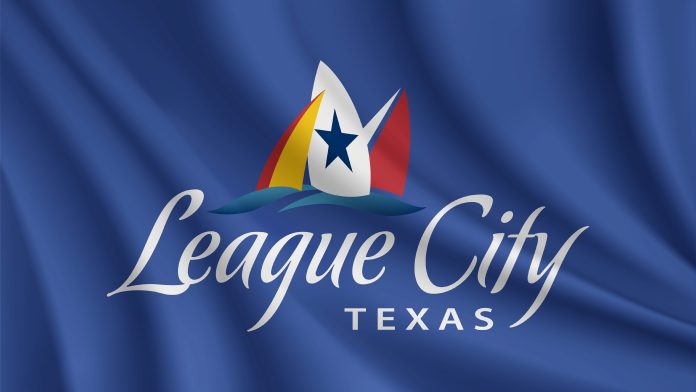Alcohol and Drug Abuse Stats in League City, Texas
Texas’ 11 regional Prevention Resource Centers (PRC) track substance use throughout the state in conjunction with the Texas Department of Health and Human Services. Regional and county data from the PRC and the CDC shows that:1, 3, 4
Paying for Alcohol and Drug Rehab in League City, Texas
Paying for rehab can feel overwhelming, especially if you’re uninsured or underinsured. But know that no matter your financial situation, you have options for accessing any level of treatment program or therapy you may need.
Free Treatment Options Near League City
If you don’t have health insurance or the means to pay for rehab, you can still enroll in an evidence-based treatment program. There are several treatment options you may want to look into:
State-funded rehab centers: These state-licensed treatment facilities get grants and other sources of funding from the government. That funding allows them to provide highly affordable and free treatment programs for Texas residents who need help paying for rehab.
Methadone clinics:: If you need treatment for opioid addiction, you may be able to access reduced-cost or free care through one of these clinics. Many of them receive various forms of public funding to help patients experiencing financial need
Sliding scale treatment programs: If you go to a rehab facility that uses a sliding fee scale, you’ll only be charged what you can afford based on your income. Several facilities in the Houston area can work with you, regardless of your ability to pay.
If you need help paying for treatment, consider looking into these low-cost and free rehab facilities near League City:5
- Gulf Coast Center (roughly eight miles away in Texas City)
- ADAPT Programs (roughly 11 miles away in Alvin)
- Career and Recovery Resources (roughly 23 miles away in Houston)
- Montrose Center (roughly 24 miles away in Houston)
Paying for Rehab With Private Insurance
If you have private health insurance, your plan may include inpatient and outpatient treatment programs at various League City drug rehabs and alcohol rehabs. Several local treatment centers in and near the city take private insurance from several providers, including Aetna, Ambetter, Blue Cross Blue Shield of Texas, United HealthCare, and others.
Keep in mind your plan likely has stipulations, coverage limits, and a provider network. It may also have limitations regarding the types of services it will pay for. To learn more about your coverage, call your insurer to ask for a breakdown of your benefits. You can also search online for “drug rehabs” or “alcohol rehabs” and then call treatment centers in your area to verify your coverage.
Using Medicare or Medicaid to Pay for Treatment
If you have Medicare or Medicaid you may be able to use your insurance to help pay for short- or long-term drug or alcohol rehab in League City. But these public health plans only cover addiction treatment services that are medically necessary. That means you must undergo an assessment and be diagnosed with a substance use disorder by a licensed medical professional to get coverage.6, 7
Within 25 miles of League City, you’ll find at least 20 rehab centers that take Medicaid and four that accept Medicare.5 If you’re unsure how to go about using your plan, reach out to your provider to learn about your benefits and any eligibility requirements you must meet for coverage.
How Easy Is It to Travel to and Within League City, Texas?
 Are you considering League City alcohol rehabs or drug rehabs for yourself or someone you love? Either way, it’s always a good idea to familiarize yourself with a new location before you arrive.
Are you considering League City alcohol rehabs or drug rehabs for yourself or someone you love? Either way, it’s always a good idea to familiarize yourself with a new location before you arrive.
Nearby Airports
If you’re interested in flying to the League City area, you can choose from several airports in the greater Houston area. William P. Hobby Airport is a 20-minute drive northwest of the city and Pearland Regional Airport is situated roughly 25 minutes east of the city by car. You can also fly into George Bush Intercontinental Airport, which is about an hour’s drive north and offers more flight options.
Traveling by Car
League City is extremely well-connected to Houston via several major transit routes that connect with various major roadways leading throughout Texas and into neighboring states. Interstate 45 passes directly through the city, and the transcontinental Interstate 10 is also roughly 30 minutes north by car.
Lodging Options
If you need a short-term or long-term place to stay, you’ll find several 2- and 3-star lodging options within League City. If you’re looking for more luxurious accommodations, you’ll need to travel at least 30 minutes north or south of the city to find them.
Public Transportation and Walkability
League City isn’t very walkable, and unfortunately, the area’s public transit system is quite limited, too. Although the city does have a park-and-ride bus station, the route doesn’t operate during the afternoon. You can catch the bus in the morning between 5:30 a.m. and 8:45 a.m. and once in the evening at 5:30 p.m.8 Ideally, you should have a vehicle if you want to travel throughout the city.
Things to Do
If you’re looking for entertainment options while you’re in League City, you’ll find a nearly endless supply. Some of the most popular attractions in the area include:
- Armand Bayou Nature Preserve
- Helen’s Garden
- The Lone Star Flight Museum
- Kemah Boardwalk
- Space Center Houston
- San Jacinto Museum
If you’re ready to enroll in a drug or alcohol rehab in League City but aren’t sure which treatment program is right for you, we can help. Please call
800-681-1058
(Who Answers?)
to chat with a treatment support specialist who can help you explore rehab options that suit your needs and financial situation.
Resources
- Texas Department of State Health Services. (n.d.). Texas Health Data, Drug Overdose Deaths.
- Texas Health and Human Services. Texas Department of State Health Services. (2018). Overview of Drug Overdose Good Samaritan Laws.
- Centers for Disease Control and Prevention, National Center for Health Statistics. CDC Wonder Online Database. (2021). Underlying Cause of Death, 1999-2020 Results, Deaths occurring through 2020.
- Prevention Resource Center Region 6. (2020). Regional Needs Assessment.
- Substance Abuse and Mental Health Services Administration. (n.d.). FindTreatment.gov.
- Department of Health and Human Services, Centers for Medicare & Medicaid Services. (2016). Medicare Coverage of Substance Abuse Services.
- Department of Health & Human Services, Centers for Medicare & Medicaid Services. (2010, July 26). Texas State Plan Amendment 10-17.
- Galveston, Texas. (n.d.). League City Park and Ride Schedule.



